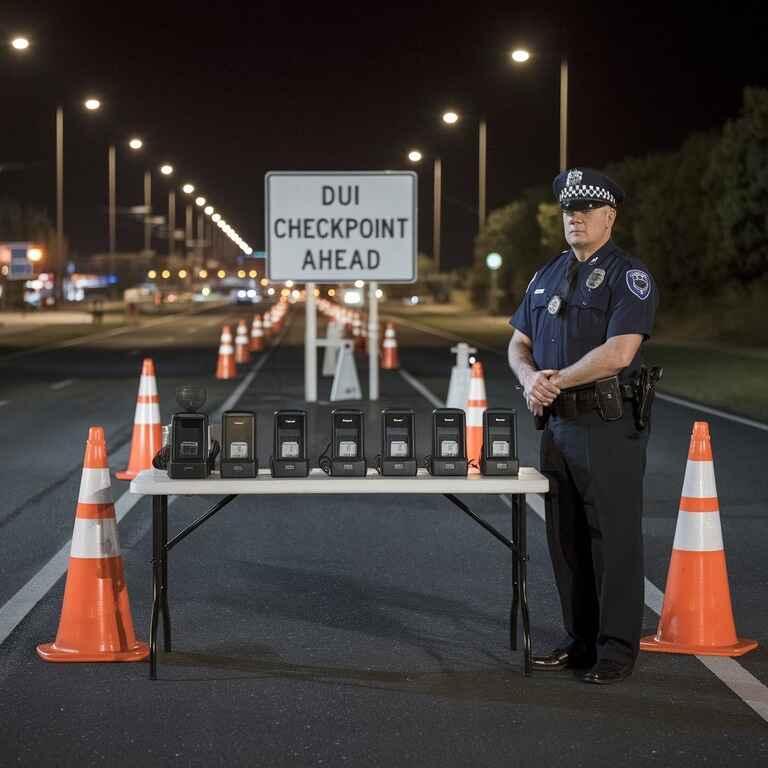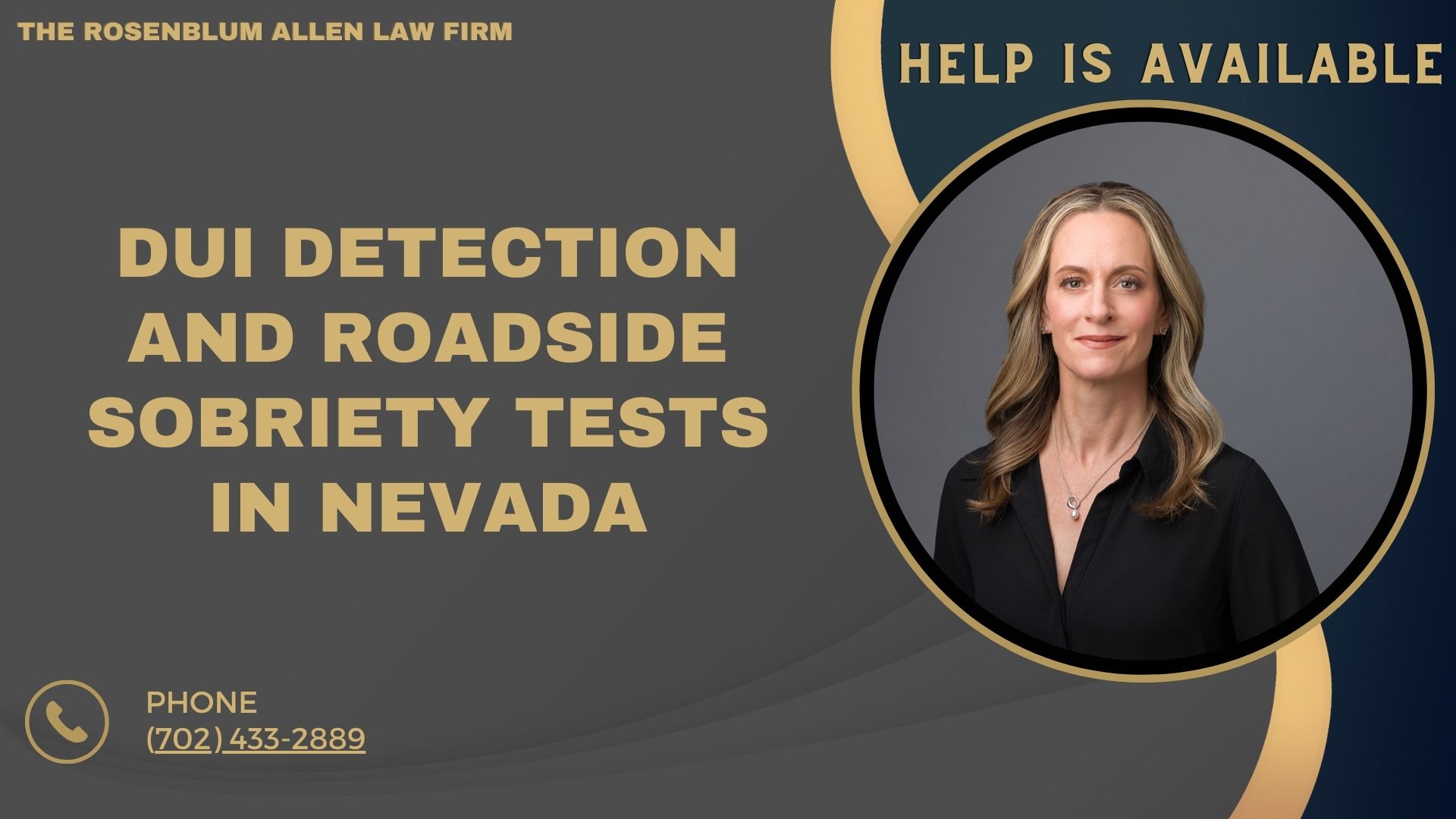Roadside breathalyzer tests are a standard tool law enforcement uses to identify impaired drivers and promote road safety. Understanding the laws surrounding these tests is crucial for every driver. Knowing your rights, responsibilities, and potential consequences can help you make informed decisions if you’re ever subjected to one of these tests.
 Roadside Breathalyzer Tests: An Overview
Roadside Breathalyzer Tests: An Overview
What is a Breathalyzer Test?
A breathalyzer test is a device law enforcement uses to measure blood alcohol concentration (BAC) in a person’s breath. The device calculates BAC by analyzing the amount of alcohol present in the air exhaled into it.
Definition and Purpose
The breathalyzer is designed to estimate the level of alcohol in a driver’s system. Its primary purpose is determining whether a driver is over the legal BAC limit, typically 0.08% in most states. However, lower limits apply to commercial drivers and individuals under 21.
Technology Used to Measure Blood Alcohol Concentration
Modern breathalyzers use infrared spectroscopy or fuel cell technology to detect alcohol molecules in a person’s breath. These technologies are designed to provide rapid and reasonably accurate results.
When Are Breathalyzer Tests Administered?
Law enforcement officers may administer a breathalyzer test in various scenarios, including:
- Routine Traffic Stops: If an officer observes signs of impairment, such as erratic driving or the smell of alcohol, they may request a breathalyzer test.
- DUI Checkpoints: Breathalyzers are commonly used at sobriety checkpoints, where officers screen drivers for signs of intoxication.
- After Suspected Impaired Driving Incidents: Officers may use breathalyzer tests to assess BAC levels in cases involving accidents or other driving violations.
Legal Framework for Roadside Breathalyzer Laws
Federal Laws and Guidelines
While DUI laws are primarily governed at the state level, federal regulations and guidelines influence how these laws are enforced.
Role of the National Highway Traffic Safety Administration (NHTSA)
The NHTSA sets national standards for DUI enforcement and provides training programs for law enforcement officers. It also develops guidelines for the proper use and calibration of breathalyzer devices.
Federal Funding Incentives Tied to DUI Enforcement
States that comply with federal DUI enforcement standards may receive additional highway safety funding. These incentives encourage states to adopt stringent measures like implied consent laws to combat impaired driving.
State-Specific Breathalyzer Laws
Each state has its own set of laws governing the use of roadside breathalyzer tests. Key variations include:
Variations in BAC Legal Limits
| Driver Type | Typical BAC Limit |
|---|---|
| Standard Drivers | 0.08% |
| Commercial Drivers | 0.04% |
| Underage Drivers | 0.01%–0.02% |
Differences in Implied Consent Laws
While all states have implied consent laws, the specific penalties for refusing a breathalyzer test vary. Some states impose immediate license suspensions, while others may levy additional fines or criminal charges.

Implied Consent Laws and Their Implications
What is Implied Consent?
When you get a driver’s license, you agree to “implied consent.” This means you’ve already been permitted to take specific tests—like a breathalyzer—if a police officer suspects you of driving under the influence (DUI).
It’s a way for states to make sure drivers cooperate with efforts to reduce drunk driving. In short, you agree to these rules by driving on public roads, whether you realize it or not.
Legal Definition and Application
Implied consent laws differ slightly by state, but they all require drivers to comply with chemical tests (like breath, blood, or urine) when legally requested by an officer. Refusing can lead to consequences even if you haven’t been drinking.
Connection to Obtaining a Driver’s License
In most states, accepting implied consent rules is a condition for getting your driver’s license. This means you agree to these terms when you sign your paperwork at the DMV.
Consequences of Refusing a Breathalyzer Test
Refusing a breathalyzer test might seem like a way to avoid trouble, but it usually creates new problems.
Immediate Penalties
- License Suspension: Most states will suspend your license on the spot if you refuse. Suspension periods vary but often last six months to a year for a first offense.
- Fines: You may face additional penalties, even if you are acquitted of a DUI.
Additional Legal Consequences
- Evidence in Court: Refusing a test doesn’t mean the officer has no evidence against you. In some states, your refusal can be used as proof of guilt during your trial.
- Criminal Charges: Some states make it a separate crime to refuse a breathalyzer test.
Can You Refuse a Breathalyzer Test Legally?
You can technically refuse, but it rarely helps.
Situations Where Refusal Is Permissible
- If the officer doesn’t have reasonable suspicion to stop you or demand the test.
- If the officer doesn’t follow proper legal procedures, such as explaining the penalties for refusal.
State-by-State Penalties for Refusal
Penalties vary widely. For example:
- In California, refusal results in a one-year license suspension and no restricted driving privileges.
- In Florida, refusing a second time can lead to misdemeanor charges.
Rights and Responsibilities During a Traffic Stop
Understanding Your Rights
When pulled over, it’s essential to know what you can—and cannot—do.
Right to Remain Silent
You don’t have to answer questions like, “Have you been drinking?” Politely state that you choose to remain silent.
Right to Legal Counsel
You can request an attorney, though this right doesn’t usually apply until after arrest.
Right to Refuse Certain Field Sobriety Tests
Field sobriety tests (like walking a straight line) are often voluntary. Breathalyzer tests, however, are usually required under implied consent laws.
Responsibilities During a Traffic Stop
While you have rights, you also have responsibilities.
Provide Identification and Documentation
When asked, you must show your driver’s license, registration, and proof of insurance.
Comply With Lawful Instructions
Follow the officer’s instructions respectfully. Noncompliance can escalate the situation.

Accuracy and Reliability of Roadside Breathalyzer Tests
Factors Affecting Breathalyzer Accuracy
Breathalyzer tests aren’t perfect. Many factors can influence their results.
Calibration and Maintenance Issues
- Devices need regular calibration to stay accurate. If the machine isn’t properly maintained, it could give false readings.
- Courts often examine maintenance records during DUI cases.
External Factors
- Diet: Certain diets, like keto, can cause your body to produce acetone, which may falsely elevate BAC readings.
- Medical Conditions: Conditions like GERD (acid reflux) can cause alcohol from the stomach to appear in your breath, skewing results.
- Environmental Influences: Mouthwash or certain medications can contain alcohol and affect readings.
Legal Challenges to Breathalyzer Results
Breathalyzer results can be challenged in court.
Common Defense Strategies
- Arguing improper device calibration.
- Demonstrating that external factors (like medical conditions) influenced the result.
Expert Testimony and Evidence Disputes
Hiring an expert witness can strengthen your case by pointing out flaws in the test or the device’s reliability.
DUI Checkpoints and Breathalyzer Testing
Legal Basis for DUI Checkpoints
DUI checkpoints, also called sobriety checkpoints, are temporary roadblocks set up by law enforcement to catch impaired drivers. They might seem inconvenient, but they’re legal in most states and a vital tool for public safety.
Supreme Court Rulings on Their Constitutionality
The U.S. Supreme Court has ruled that DUI checkpoints are constitutional. Although they temporarily stopped drivers without specific suspicion, the Court determined that the public safety benefits outweighed the inconvenience to drivers.
However, 12 states don’t allow DUI checkpoints because they believe they violate their state constitutions. For example, Texas and Michigan have outlawed them.
Guidelines for Setting Up Checkpoints
For a checkpoint to be legal, law enforcement must follow strict guidelines, including:
- Public Notice: Many jurisdictions require advance notice of checkpoints. These announcements are often shared on social media or local news.
- Neutral Location: Checkpoints must be placed in areas with a history of DUI incidents, not at random spots.
- Random Stops: Officers must follow a consistent pattern when stopping vehicles (e.g., every third car). They can’t choose drivers arbitrarily.
- Minimal Delay: Stops should be brief to avoid inconvenience for sober drivers.
What to Expect During a Checkpoint
DUI checkpoints can feel intimidating, but knowing what to expect can ease your mind.
Officer Questioning and Observations
When you pull up, an officer will likely ask for your license, registration, and insurance. They may also ask questions like, “Have you been drinking tonight?”
While talking to you, the officer is looking for signs of impairment, such as:
- Slurred speech.
- The smell of alcohol.
- Bloodshot eyes.
Standardized Protocols for Administering Breathalyzer Tests
If the officer suspects you’ve been drinking, they may ask you to take a breathalyzer test. This is typically a handheld device used right at the checkpoint. You may be detained for further testing or observation if you fail or refuse.

Penalties for Failing or Refusing a Breathalyzer Test
Administrative Penalties
Failing or refusing a breathalyzer test triggers automatic administrative penalties. These are separate from any criminal charges and often take effect immediately.
License Suspension and Revocation Periods
Most states will suspend your license if you fail or refuse a breathalyzer. Suspension periods vary, but here are some general guidelines:
- First Offense: 90 days to 1 year.
- Second Offense: Up to 2 years.
- Third Offense or More: Up to 5 years or permanent revocation in some states.
Mandatory Alcohol Education Programs
Many states require offenders to complete alcohol education or treatment programs. These programs aim to reduce repeat offenses and can be a condition for reinstating your license.
Criminal Penalties
Failing or refusing a breathalyzer can also lead to criminal penalties, especially if you have prior DUI convictions.
Fines, Jail Time, and Probation
Penalties vary by state, but common consequences include:
- Fines Can range from $500 to $2,000 for a first offense.
- Jail Time: A first offense might take up to 6 months, while repeat offenses can lead to years behind bars.
- Probation: Offenders are often placed on probation, which includes regular check-ins and strict conditions.
Impact on Employment and Insurance Rates
A DUI conviction can make finding or keeping a job difficult, especially if you need to drive for work. Additionally, your car insurance rates will likely skyrocket as insurers see DUI convictions as a sign of high risk.

Breaking It All Down
Roadside breathalyzer laws are designed to keep our roads safe and reduce the dangers of impaired driving. While these laws can feel intrusive, understanding your rights and responsibilities is key to navigating a traffic stop or DUI checkpoint.
Remember that you’re agreeing to implied consent laws by driving, which means refusing a breathalyzer test often leads to immediate penalties. While you have the right to remain silent and seek legal representation, staying calm and respectful during any interaction with law enforcement is essential.
The best way to avoid the risks associated with breathalyzer tests is simple: don’t drink and drive. Plan, use rideshare services, or rely on a designated driver. Not only will this keep you safe, but it will also protect others on the road.
Consulting an experienced attorney can make a big difference if you ever face DUI charges. They can help you understand your options, challenge test results if needed, and work to minimize the consequences.
Knowing the laws and making responsible decisions can save you time, money, and life. Stay informed, stay safe, and always prioritize responsible driving.

Frequently Asked Questions
Can I Legally Refuse a Breathalyzer Test Without Consequences?
Technically, you can refuse a breathalyzer test, but there are always consequences. Under implied consent laws, refusing the test often results in immediate penalties, like license suspension, regardless of whether you were over the legal limit. In some states, refusal can also be used against you in court as evidence of guilt.
What Should I Do if I Believe the Breathalyzer Result is Inaccurate?
If you think the result is wrong, stay calm and don’t argue at the scene. You can challenge the test’s accuracy later with an attorney’s help. They may investigate issues like improper calibration, poor device maintenance, or external factors that could have affected the reading, such as certain medical conditions or substances in your mouth.
Can I Be Forced to Take a Blood Test if I Refuse the Breathalyzer?
Yes, in some cases. If you refuse a breathalyzer test, officers may obtain a warrant to administer a blood test. This process varies by state, but it’s becoming more common thanks to electronic warrant systems allowing officers to get quick judge approvals.
How Accurate Are Roadside Breathalyzers Compared to Other Tests?
Roadside breathalyzers, often called preliminary breath tests (PBTs), are less accurate than more sophisticated devices used at police stations. External factors, like weather conditions or device calibration, can affect their accuracy. Blood tests, on the other hand, are considered the gold standard for determining BAC levels.
What Happens if I Fail the Breathalyzer Test but Wasn't Driving Erratically?
Even if your driving seemed fine, failing a breathalyzer test typically results in an arrest for DUI. Most states enforce DUI laws strictly based on your BAC level, regardless of whether you were driving poorly.
Are There Alternatives to a Breathalyzer Test?
Yes, in some cases. Officers may use blood or urine tests to determine BAC, especially if a breathalyzer isn’t available or the results are disputed. However, these tests usually take longer to process at a medical facility.
How Can I Avoid Getting Into a Situation Where I Need to Take a Breathalyzer?
The simplest way is to avoid drinking and driving altogether. Plan by:
- Using a rideshare service like Uber or Lyft.
- Designating a sober driver.
- Staying overnight at a friend’s house or nearby hotel.
If you’ve had even a tiny amount of alcohol, ..it’s better to be safe than sorry.


If you’re seeking more information or need legal assistance, we have resources available to help. Here are some helpful links to guide you through specific DUI-related topics:
- Las Vegas DUI Lawyer: Get experienced legal help from experienced DUI attorneys in Las Vegas to navigate your case and protect your rights.
- DUI Consequences: Learn about the potential penalties for DUI offenses, including fines, jail time, and the long-term impact on your record.
- DUI License Suspension: Understand how a DUI can affect your driving privileges and what steps you can take to regain your license.
- DUI Plea Bargain: Explore how plea bargains work in DUI cases and whether this option might apply to your situation.
- Drug DUI: Discover how DUIs involving drugs (prescription or illegal) differ from alcohol-related DUIs and their unique legal challenges.
- DUI Defense Strategies: Learn about common defenses used to fight DUI charges, from challenging test accuracy to questioning procedural errors.
- First-Time DUI: Facing your first DUI charge? Find out what to expect and how to handle it to minimize the impact.
- Second-Time DUI: Learn about the harsher penalties and legal steps for handling a second DUI offense.
- Marijuana DUI: Understand the legal implications of driving under the influence of marijuana in Nevada.
- Nevada DUI Law: A detailed guide to DUI laws in Nevada, including legal limits and how DUIs are prosecuted.
- Las Vegas Legal Alcohol Limit: Get clarity on the legal alcohol limits in Las Vegas and how they apply to drivers.
These resources are here to help you stay informed and prepared. Whether you’re facing charges or just want to learn more about DUI laws, these guides provide valuable insights. If you need personalized legal advice, don’t hesitate to reach out for assistance.

Offsite Resources for You
Here are seven valuable offsite resources that readers may find helpful when exploring topics related to roadside breathalyzer laws, DUI charges, and traffic laws:
- Mothers Against Drunk Driving (MADD): A leading organization working to prevent drunk and drugged driving while supporting victims of these crimes.
- National Highway Traffic Safety Administration (NHTSA): Provides comprehensive information on traffic safety, DUI statistics, and federal regulations to combat impaired driving.
- Alcoholics Anonymous (AA): A global resource for individuals seeking support for alcohol-related challenges, including those stemming from DUI charges.
- SAMHSA (Substance Abuse and Mental Health Services Administration): Offers resources and treatment options for substance abuse, including programs related to alcohol and drug dependency.
- National Motorists Association (NMA): Advocates for driver rights and provides information on DUI laws, traffic laws, and legal protections for motorists.
- FindLaw: A user-friendly legal resource for understanding DUI laws, court procedures, and legal defense strategies.
- Responsibility.org: Focuses on promoting responsible drinking and driving habits and offers education on DUI prevention.
These resources provide insights, support networks, and practical advice to help individuals stay informed and make responsible decisions.

A Special Message from Our Lead Attorney, Molly Rosenblum Allen, Esq

Thank you for taking the time to read through these resources. I hope you found the information helpful and empowering as you navigate your situation. If you’re ready to take the next step, I encourage you to call me and my team at (702) 433-2889. We’re here to listen, guide, and help you move forward with confidence. Let’s get started on resolving your case today.





